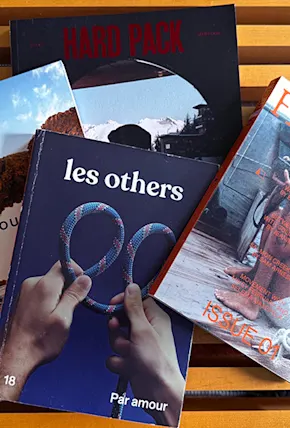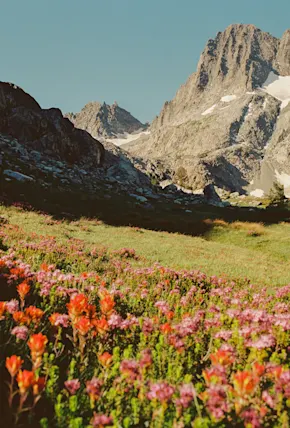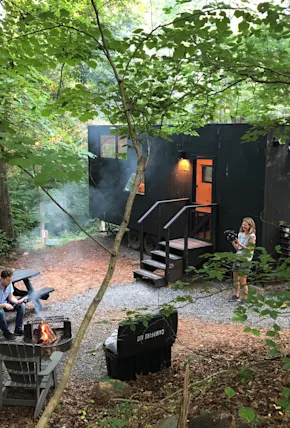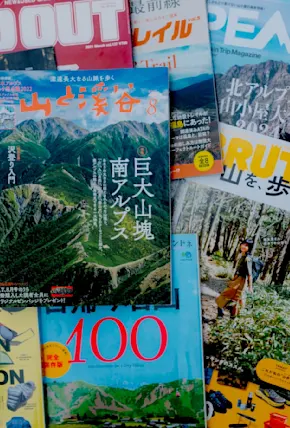Where available the following 'Shop Now' buttons have been linked to Black-owned bookstores.
The importance of increasing representation in the outdoors cannot be overstated. A shift in the narrative is needed—and long overdue. The following nine titles offer a range of examples of BIPOC writers, poets, scholars, and scientists doing just that. Though be forewarned, most of these titles are not "adventure" books per se, but that's on purpose.
These titles explore deep, personal, innate connections to and protection of the natural world that moves beyond the usual perspective of the traditional climber-trash-river-rat white dude writer. Listen to Black, Indigenous, and People of Color's voices. We've got lots to say, especially when it comes to our relationship to the great outdoors.

Black Faces, White Spaces: Reimagining the Relationship of African Americans to the Great Outdoors
By Carolyn Finney
Anyone who loves spending their time outdoors and has the privilege to do so, should read this book. Although this read is said to be a bit dissertation-like and too “academic” for some, it is a crucial piece to further inform ourselves on the reasons why Black people are so underrepresented in the outdoors, and ways—perceived and literal—that nature is racialized in America.

As Long As Grass Grows: The Indigenous Fight for Environmental Justice from Colonization to Standing Rock
By Dina Gilio-Whitaker
An important read regarding environmental justice—what it means and who it applies to. If you take away one thing from this book it’s this: That the legal history of environmental justice is dominated by white supremacy. Dina Gilio-Whitaker proves to the reader how little the average American knows about the historic tensions between Indigenous peoples and the mainstream environmental movement. Overall, a super accessible, relatively short read.

Black Nature: Four Centuries of African American Nature Poetry
By Camille T. Dungy
Because Black experience of nature differs from white experience of nature, the writing between Black and white authors sure as hell is going to be different. A beautiful redefinition of “nature” poetry, if you will.

The Unlikely Thru-Hiker
By Derick Lugo
This notable page turner touches on the experience of being a Black man in an almost exlcusively white niche—thru-hiking—though focuses largely on the day-to-day life of novice hiker making his way 2,190 miles from Georgia to Maine, much of which is hilarious. Lugo's admirable ability to remain positive in the face of adversity without leaning into the usual complaints that many thru-hiking accounts have is nothing short of inspiring. It’s a title that screams: “the outdoors is for everyone” and that even noobs can hike one of the longest trails in the US (should we be as mentally and physically tough as Mr. Fabulous).

Colors of Nature
By Lauret Savoy, Alison Hawthorne Deming
Full of essays by over 30 writers, this title responds to the problem of the white-washed conversation of American appreciation of nature. Put down your ‘Desert Solitaire’ and get educated with this widely diverse environmental lit.

There’s Something in the Water
By Ingrid Waldron
Another title about environmental racism (are we noticing a theme here?) using Nova Scotia as a case study to focus in on health impacts of Black and Indigenous communities. Now a documentary on Netflix.

Trace: Memory, History, Race, and the American Landscape
By Lauret Savoy
"To inhabit this country is to be marked by residues of its still unfolding history, a history weighted by tangled ideas of “race” and of the land itself." - Lauret Savoy
This book will keep you up at night while you ask yourself questions you may never have thought of—and that’s the whole point.

Braiding Sweetgrass
By Robin Wall Kimmerer
A Classic. Written by a scientist AND a poet, you'll be compelled and inspired to observe and appreciate nature more closely after reading this one.

The Adventure Gap
By James Edward Mills
“The Adventure Gap” details the story of the first summit attempt of Denali by Mills and his team of entirely African-American climbers. The high adrenaline adventure draws you in, but the real takeaway from this one is Mills’ commitment to inspire minorities to get outside and pursue careers and hobbies outdoors in whatever capacity that looks like to them. His goal was never the summit, but rather to ask: “What will it take to bridge this “adventure gap” that we continue to see in America’s wildest places?”

The Home Place: Memoirs of a Colored Man's Love Affair with Nature
By J. Drew Lanham
Hailed as one of the most monumental books about race relations in America, The Home Place tells the story of the boyhood adventures and experiences of Lanham, now a professor of wildlife ecology at Clemson University. Through gorgeous stories of nature and memories of growing up in the deep South he begins to question his place in the outdoors, leading to conversations of belonging and explorations of the contradictions of Black identity in his rural hometown of Edgefield County, South Carolina.
Reading books by BIPOC authors and following BIPOC outdoorists on Instagram will not cure the systemic racism that exists in America's cities and wild places, but self education and supporting better representation are important steps to take towards unlearning unconscious biases in ourselves, in others, and in the places we recreate.






